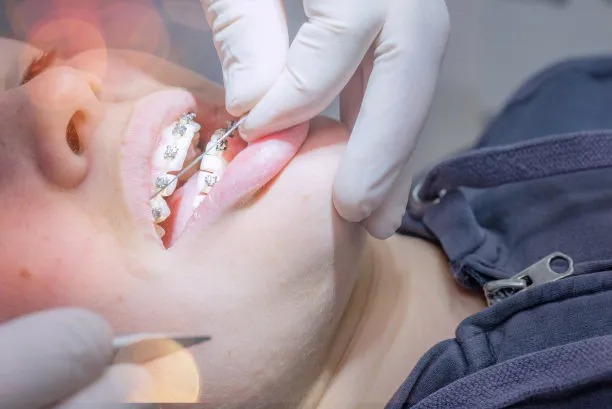Summary: When considering dental fillings, its crucial to take essential precautions to ensure optimal oral health and recovery. This article covers vital aspects such as selecting a qualified dentist, understanding the procedure, pre-treatment preparations, and post-treatment aftercare. Each of these areas plays a significant role in facilitating a smooth dental filling experience while minimizing potential complications. By following these guidelines, individuals can enhance their overall dental health and promote a faster recovery, ensuring longevity of the filling and better oral hygiene practices.
1. Choosing a Qualified Dentist for Fillings

Before undergoing a dental filling procedure, selecting a qualified and experienced dentist is of utmost importance. A skilled dentist will ensure that the filling procedure is performed accurately and safely, minimizing the risk of complications. You should seek recommendations from friends, family, or trusted sources and verify the dentists credentials and reviews.
It’s also beneficial to schedule a preliminary consultation. This allows you to discuss your dental issues, explore treatment options, and gauge the dentist’s approach to patient care. A good dentist will take the time to explain the process, answer your questions, and build a sense of trust, which is essential for a comfortable experience.
In addition to the qualifications, consider the dental office environment, including hygiene practices and the use of modern technologies. These factors contribute to the overall safety and effectiveness of your treatment, ensuring that you receive the best care possible.
2. Understanding the Dental Filling Procedure
Having a clear understanding of what to expect during the dental filling procedure can help alleviate anxiety. The process usually begins with the dentist numbing the affected area using local anesthetics. This step is crucial to ensure that you are comfortable and pain-free throughout the treatment.
Next, the dentist will remove any decay from the tooth before cleaning and prepping it for the filling material. Its essential to know the different types of filling materials available, such as amalgam, composite, and ceramic, as each has its advantages and disadvantages based on your individual needs and preferences.
Being informed about the procedure can lead to a better experience. Feel free to ask your dentist detailed questions about each step of the process, including the estimated time for completion and any potential side effects. This knowledge will empower you to make informed decisions and reduce any apprehensions related to the procedure.
3. Pre-Treatment Preparations for Dental Fillings
Preparing for the dental filling procedure involves both physical and mental adjustments. Physically, it’s advisable to inform your dentist about any medications you’re currently taking, as certain drugs can interact with anesthesia or the filling material. This disclosure ensures that your dentist can customize the approach to best suit your circumstances.
Mental preparation is equally crucial. Consider practicing relaxation techniques such as deep breathing or meditation prior to your appointment. Stress can heighten discomfort and anxiety, so employing methods to calm your nerves will create a more positive experience during the filling procedure.
Additionally, try to arrange for a companion to accompany you, especially if you feel nervous. This support can alleviate anxiety and provide you with comfort during the appointment, enhancing your overall experience.
4. Post-Treatment Aftercare Tips
After the dental filling procedure, following proper aftercare guidelines is essential for optimal recovery. One of the primary recommendations is to avoid eating hard foods for at least the first 24 hours post-treatment. This precaution helps protect the filling from excessive pressure and ensures that it sets correctly in place.
Proper oral hygiene post-filling is equally important. Make sure to maintain regular brushing and flossing, but be gentle around the treated area to avoid dislodging the filling. Using a soft-bristled toothbrush can be beneficial during the initial days after treatment until your mouth fully adjusts.
Finally, keep an open line of communication with your dentist regarding any unusual sensations or prolonged pain following the filling. Addressing such concerns promptly can prevent further complications and ensure that any necessary adjustments are made in a timely manner.
Summary:
The precautions discussed before undergoing a dental filling include the importance of selecting a qualified dentist, understanding the procedure and its phases, pre-treatment preparations, and diligent post-treatment care. These aspects work together to ensure a smooth process and promote recovery, ultimately enhancing long-term oral health.
This article is compiled by Vickong Dental and the content is for reference only.
Vickong Dental
Vickong Dental is a large medical group established in Hong Kong in 2008 by professors from well-known medical universities in Guangdong and Hong Kong, as well as medical doctors from key national '985' universities (including Master's supervisors and senior professors). The chain of branches brings together expert dentists with PhDs and Master's degrees from Hong Kong and Mainland China, committed to providing high-quality dental treatment.
"Vickong Dental Practices the University Motto of 'Healing and Serving Society,' with a Stable Operation for Sixteen Years. It Has Been honored with Hong Kong Enterprise Leaders's Choice,' and is a Global Trusted Implant Center for the Nobel Implant System. Recommended by Hong Kong Metro Broadcast and Guangdong Television, it Serves Customers from Over Thirty Countries and Regions, Gaining the Trust and Favor of Citizens from the Guangdong-Hong Kong-Macau Greater Bay Area and Surrounding Cities.

Thousands of customers' unanimous praise
The most recognized and highly recommended dental service by customers in the Guangdong-Hong Kong-Macau Greater Bay Area
We Ensure You Receive Detailed Care and Attention Here
Hong Kong standards, Shenzhen prices, Your Trusted English-speaking dentists

Vickong Dental Medical-Grade Instrument Disinfection Process
Vickong Dental Medical-Grade Instrument Disinfection Process

Vickong Dental Chain: A Warm and Comfortable Environment for Treatment






Appointment Hours

Q&A
Why choose Vickong Dental?
Vickong Dental practices the university motto 「Medicine to Benefit Society」, with each branch bringing together highly qualified dentists with doctoral and master’s degrees from Hong Kong and the Mainland, and has maintained seventeen years of steady operation。Recipient of 「2024 Hong Kong Enterprise Leaders Brand」, 「2025 Hong Kong Enterprise Leaders Brand」, a Nobel Biocare Global Trusted Implant Center, and a brand recommended by Metro Radio Hong Kong and Guangdong TV。
To date, we have served customers from more than thirty countries and regions,earning exceptionally high word-of-mouth recognition and trusted recommendations from residents across the Guangdong-Hong Kong-Macao Greater Bay Area and surrounding cities
We have eight major branches in Zhuhai、Shenzhen,and a consultation and service assurance center in Hong Kong,so you can book a free consultation at any time for any questions,which is very reassuring.
If I do not accept the quotation after the CT scan, will I be charged??
No! As long as the actual treatment has not started, you will not be charged any fees.
Will there be any additional charges during the treatment process?
No, there won’t be any additional charges. Before treatment begins, we will clearly explain the treatment plan and its corresponding fees. Only after the patient agrees and signs the consent form will we proceed with the dental service.
Can I pay in Hong Kong dollars?
Yes. Vickong Dental accepts payment in Hong Kong dollars. The amount will be converted based on the exchange rate of the day, and the applicable rate will be clearly communicated to you in advance.
Can I reschedule my appointment at any time?
Yes. Please contact us via **WeChat** or **WhatsApp** as early as possible, providing your original appointment time and details, along with your preferred new date and time slot for rescheduling.













